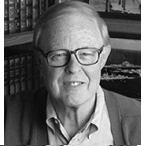Thermodynamics 2.0 | 2022 Program: Sessions and Abstracts
Mon - Wed, July 18 - July 20 , 2022 , Boone, North Carolina
Session PA03: Panel 03: Evolution and Purposiveness
16:15-17:45. Wednesday July 20, 2022
Chair: Alan Love
Title: Peter Corning, Institute for the Study of Complex Systems
Presenter:
- Peter Corning
(Institute for the Study of Complex Systems, Seattle WA, USA)
Bio-sketch
Peter A. Corning, Ph.D., is an American bio-social scientist, and complex systems scientist. He holds a doctorate from New York University, as well as post-doctoral training at the Institute for Behavioral Genetics. He currently serves as Director of the Institute for the Study of Complex Systems in Seattle, WA. Previously, he taught for many years in the interdisciplinary Human Biology Program at Stanford University and held research appointments in the Behavior Genetics Laboratory and the Engineering-Economic Systems Department. He is known especially for the Synergism Hypothesis, a theory about the causal role of synergy in the evolution of complex systems, and for a cybernetic theory of information developed with the late Stephen Kline of Stanford University. Areas of research include evolution, complex systems, systems theory, and information theory. In addition to some 200 professional papers and media articles, his books include The Synergism Hypothesis: A Theory of Progressive Evolution, McGraw-Hill 1983; Nature's Magic: Synergy in Evolution and the Fate of Humankind, Cambridge University Press 2003; Holistic Darwinism: Synergy, Cybernetics, and the Bioeconomics of Evolution, University of Chicago Press 2005; The Fair Society: The Science of Human Nature and the Pursuit of Social Justice, University of Chicago Press 2011; and Synergistic Selection: How Cooperation Has Shaped Evolution and the Rise of Humankind, World Scientific 2018. His website and blog can be found at https://complexsystems.org
Author(s):
- Peter Corning
(Institute for the Study of Complex Systems, Seattle WA, USA)
Abstract:PA03.175
Abstract
Peter A. Corning, Ph.D., is an American bio-social scientist, and complex systems scientist. He holds a doctorate from New York University, as well as post-doctoral training at the Institute for Behavioral Genetics. He currently serves as Director of the Institute for the Study of Complex Systems in Seattle, WA. Previously, he taught for many years in the interdisciplinary Human Biology Program at Stanford University and held research appointments in the Behavior Genetics Laboratory and the Engineering-Economic Systems Department. He is known especially for the Synergism Hypothesis, a theory about the causal role of synergy in the evolution of complex systems, and for a cybernetic theory of information developed with the late Stephen Kline of Stanford University. Areas of research include evolution, complex systems, systems theory, and information theory. In addition to some 200 professional papers and media articles, his books include The Synergism Hypothesis: A Theory of Progressive Evolution, McGraw-Hill 1983; Nature’s Magic: Synergy in Evolution and the Fate of Humankind, Cambridge University Press 2003; Holistic Darwinism: Synergy, Cybernetics, and the Bioeconomics of Evolution, University of Chicago Press 2005; The Fair Society: The Science of Human Nature and the Pursuit of Social Justice, University of Chicago Press 2011; and Synergistic Selection: How Cooperation Has Shaped Evolution and the Rise of Humankind, World Scientific 2018. His website and blog can be found at https://complexsystems.org
